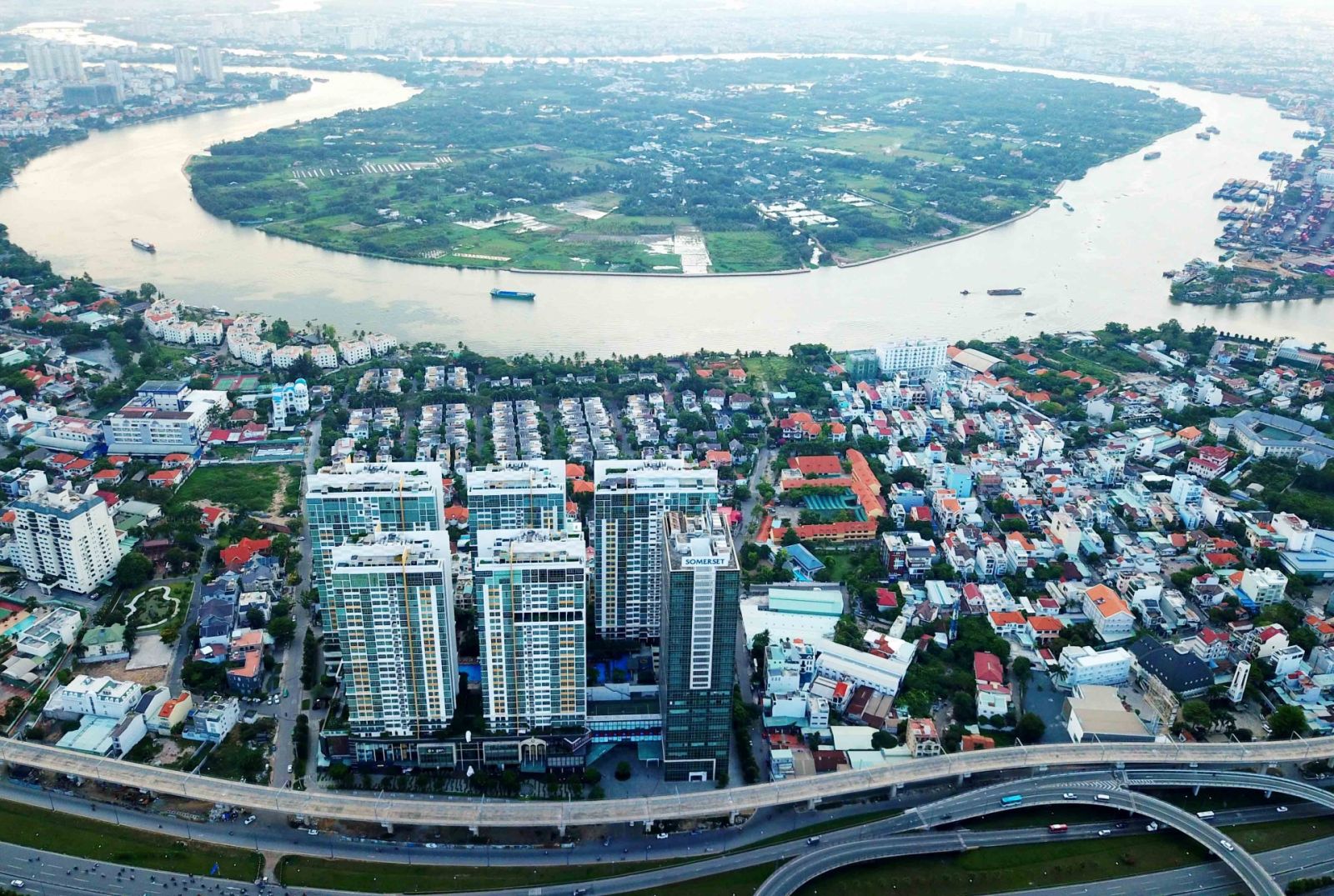Administrative procedures were among the key reasons behind the delay of Lotte's Eco-Smart City and Keppel Land's Saigon Sport City projects, said the city’s chairman Nguyen Thanh Phong at a meeting to review socioeconomic issues in the city in the first four months of the year, held on May 10.
“The city has designated 2019 as a year of administrative improvement, however, we are four months into the year and I have not seen much improvement,” Phong said at the meeting.
He requested that the two projects’ problems should be solved maximum in the remaining seven months of the year.

Eco-Smart City and Saigon Sports City are essential to turn Ho Chi Minh City into a smart city. (Photo: Le Toan)
These two projects, according to Phong, were very important for the city to become a smart city by 2025.
Since July 2017, four affiliates belonging to Lotte Group of Lotte Asset Development, Lotte Shopping, Lotte Hotel, and Lotte Engineering and Construction were given the right to become the investor for the Eco-Smart City in Thu Thiem by the Ho Chi Minh City People’s Committee.
With the investment capital of $884 million, Lotte Eco-Smart City was designed as a modern complex covering six plots in Functional Area 2A in Thu Thiem New Urban Area – the new economic hub of Ho Chi Minh City.
The 74,000 square metre site will incorporate a shopping mall, offices, hotels, serviced residences, and apartments. The 11 residential towers, 15-40 storeys each, covering 50,000 square metres, will be built first.
Lotte Group also needs to complete 25,000 square metres of contracted infrastructure that will serve the site, including four roadways, before transferring it to local authorities.
Meanwhile, the Saigon Sports City is a 64-hectare township that Keppel Land is developing in the prime location of District 2 in Ho Chi Minh City, in collaboration with Keppel Urban Solutions.
Linson Lim, president of Keppel Land Vietnam said that Keppel will incorporate leading technologies into the development of Saigon Sports City, driven by the enablers of essential services such as smart security management, smart mobility, and environmental infrastructure solutions.
“We aim to establish Saigon Sports City as a model for other urban developments in Vietnam, especially in Ho Chi Minh City, which is undergoing a transformation into a smart city,” Lim said.
The integrated township will comprise of about 4,300 premium homes and include iconic features like a waterfront boulevard, an open public plaza, and Vietnam's first one-stop lifestyle hub with comprehensive facilities for sports, entertainment, shopping, and dining.
The first phase of Saigon Sports City will feature some 90,000 square metres of gross floor area of commercial space and about 1,220 homes, 620 units of which are slated for launch in the second half of this year.
Ho Chi Minh City has mapped out four priority tasks on its way to becoming a smart city, including a shared database, a simulation research and forecasting centre for socioeconomic policies, a smart administration centre, and an information security centre.
The city government is also encouraging companies to use the open ecosystem data to create new, high-value products which would contribute to a knowledge-based economy and startup ecosystem.
The People’s Committee has also approved a plan to build a Smart Urban Operation Centre with a total investment of VND30 billion ($1.3 million).
In addition, the city has also established the Simulation Division (under the simulation research and forecasting centre) at the Ho Chi Minh City Institute for Development Studies.
The city also plans to build two other centres, an Intelligent Operations Centre and a Socioeconomic Simulation and Forecast Centre.
In the first four months of this year, Ho Chi Minh City’s total retail sales of goods and services revenue reached VND377 trillion ($16.39 billion), up 12.5 per cent compared to the same period last year.
The city is currently calling for more than $53 billion in investment for 210 projects in transport infrastructure, education, healthcare, tourism, trade and services, and sport and tourism.
In the first four months of this year, Ho Chi Minh City attracted more than $2.37 billion, up 46 per cent compared to the same period of last year.
As of the end of last year, more than 100 countries and territories had invested in Ho Chi Minh City with 8,112 projects. Last year, FDI in the city reached $7.07 billion, up more than 7 per cent compared to 2017, accounting for 22 per cent of the country’s total FDI.

















